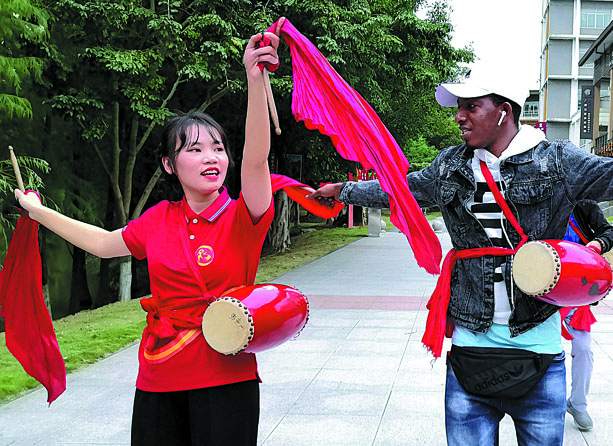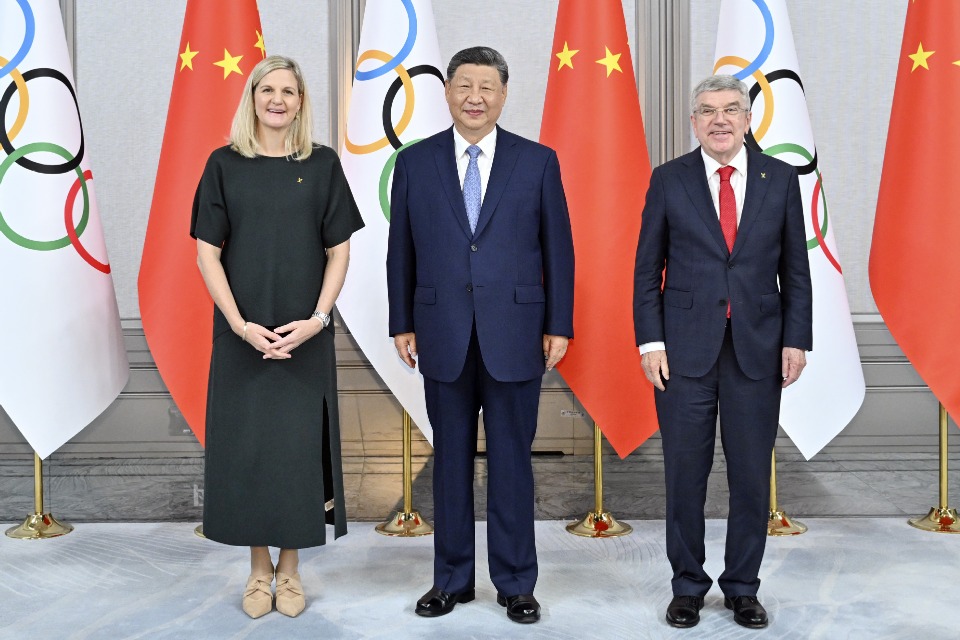Decades of exchange produce finest fruit


Joint construction
In July 2016 the Ministry of Education adopted a plan to promote joint construction under the framework of the BRI, including faculty training, joint talent training programs and a special government scholarship.
The plan encourages joint training in fields that involve matters such as transport, water conservancy engineering, marine science and ecological protection.
In 2018 the university and Padjadjaran University in Indonesia signed an agreement under the framework of the BRI to jointly build a laboratory for the sustainable use of marine biological resources.
The laboratory specializes in marine microbiology, marine conservation, aquaculture, fish processing, aquatic resource management, marine remote sensing and marine culture.
In addition to joint research it also encourages the exchange of students and staff between the two universities.
During the 13th Five-Year Plan period (2016-20), a new pattern of China's education opening to the world has accelerated.
China has signed 19 collaboration agreements with 14 international organizations, such as UNESCO, and educational collaboration between China and countries involved in the BRI has become even closer.
As participants continue to advance their educational cooperation, China and 25 countries involved in the BRI have signed agreements on mutual recognition of qualifications and degrees, promoting the implementation of 2,331 Chinese-foreign cooperative education institutions and projects.
Sino-foreign collaboration in running schools and international nongovernmental education exchanges have further promoted the vigorous development of China's education to the world.
Last November Suzhou Foreign Language School in Jiangsu province established a Silk Road International Institute to improve its ties with countries involved in the initiative.
The school will invite well-known scholars and has developed more than 20 overseas tour routes to upgrade its students' global competence as well as become more involved in people-to-people exchanges related to the BRI.
When COVID-19 broke out, many of Yachongtou's classmates returned to their countries during the winter holiday early last year. Many have had to continue their studies from their countries.
The university developed a series of classes and also takes advantage of courses on MOOC, an online education platform, says Feng, the director.
Teaching online can prove a challenge for many teachers, he says, because it requires them to keep students' attention and at the same time interact effectively with them even though they are physically separated from one another.
"After class, the teacher has to count and analyze various data, such as interaction rate, homework submission rate, and so on. It's really a huge challenge."
This is complicated by the fact that the quality of internet connection varies widely depending on the location of the student, he says, meaning that livestreaming is not always up to scratch.
The pandemic has partially changed the way the schools teach and examine students, and also influenced what people think about international educational communication and how it should be conducted.
Liao, the secretary, says the university could rely on partner institutions established in each country, making them temporary teaching revues that could bring together local students.
For those who have already graduated, the university is also in talks with companies on employing domestic and international students.
"For example, many of our domestic students who are learning Thai as well as some Thai students are interning in Thai companies in China or Sino-Thai joint venture enterprises," Feng says. "We are talking to consulates and more companies in Laos, Cambodia and Vietnam to work out more specific plans."
Huang, vice-president of Guangxi University for Nationalities, says that once the pandemic is over, the university and ASEAN plan to co-establish a college to better strengthen exchanges and collaboration in higher education among the neighbors.
The new academy will target the ASEAN market and cultivate talent with international vision and multicultural literacy, knowledge of international rules, and an interest in international affairs, Huang says.
























